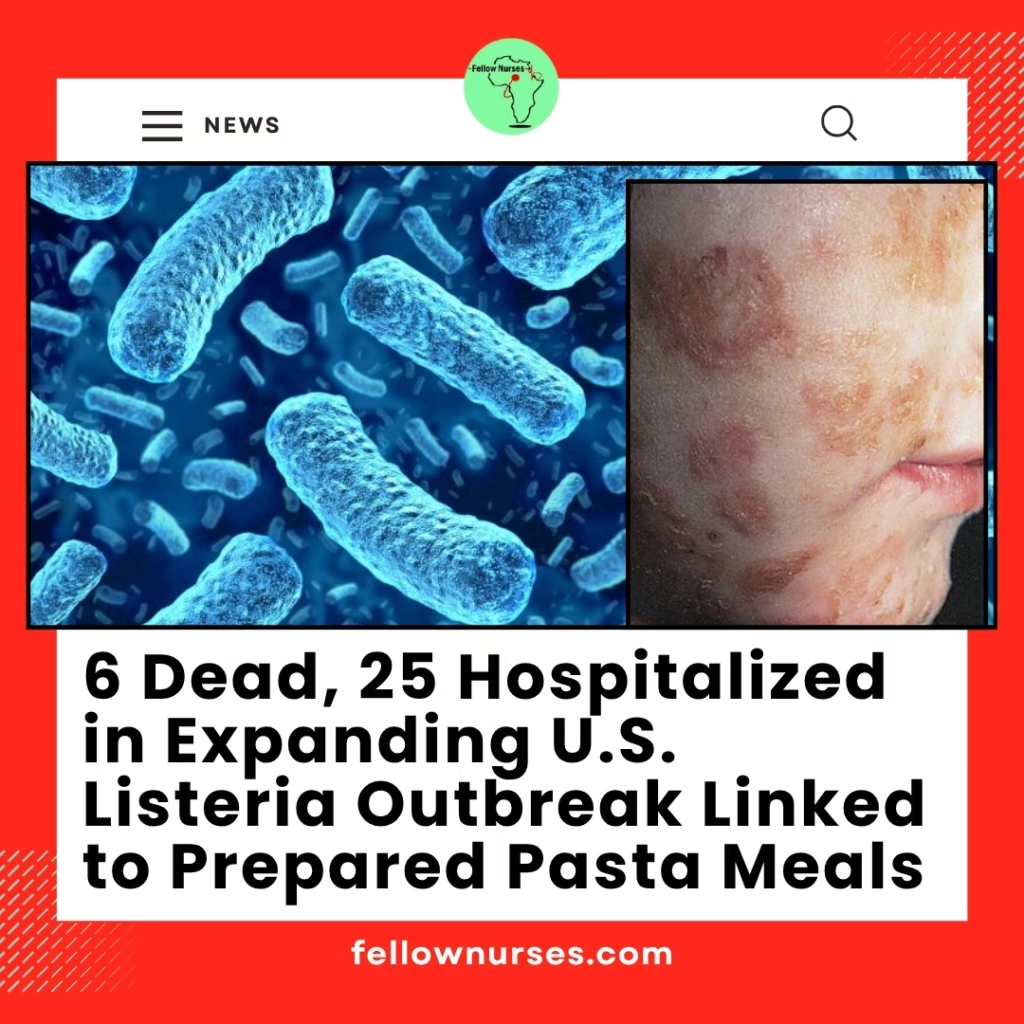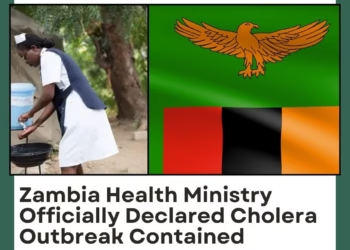Fellow Nurses Africa | Lagos, Nigeria | 04 November, 2025

A deadly outbreak of Listeria monocytogenes infections linked to prepackaged and prepared pasta meals has now sickened at least 27 people across 18 states, according to the latest update from the U.S. Centers for Disease Control and Prevention (CDC).
Of those infected, 25 have been hospitalized, and 6 deaths have been reported with fatalities recorded in Hawaii, Illinois, Michigan, Oregon, Texas, and Utah. One of the illnesses involved a pregnant woman and tragically resulted in a fetal loss.
The contaminated meals have been traced to pre-cooked pasta supplied by Nate’s Fine Foods, Inc., a California-based company whose products were distributed nationwide to major retailers including Walmart, Trader Joe’s, Kroger, and Albertsons. The affected meals include popular “ready-to-eat” trays such as Chicken Fettuccine Alfredo, Linguine with Meatballs, and various deli pasta salads.
The CDC and the U.S. Food and Drug Administration (FDA) report that new illnesses continue to appear despite several rounds of recalls announced since late October. Samples collected from patients range from August 2024 to October 2025, indicating that exposure may have been ongoing for months.
Officials warn that some consumers may still have contaminated pasta meals stored in their refrigerators or freezers, underscoring the need for continued vigilance.
Who’s Most at Risk
Listeriosis primarily threatens pregnant women, newborns, older adults, and individuals with weakened immune systems.
Symptoms may appear weeks after exposure and include fever, muscle aches, nausea, diarrhea, confusion, and loss of balance. Severe cases can lead to sepsis, meningitis, or miscarriage.
Health experts urge consumers in high-risk groups to avoid eating recalled ready-to-eat pasta products and to thoroughly clean refrigerators and surfaces where such foods were stored, as Listeria can survive and grow even at cold temperatures.
What Consumers Should Do
-
Check your refrigerators and freezers for recalled pasta meals or deli pasta salads.
-
Dispose of any affected items immediately m do not taste them “to see if they’re safe.”
-
Clean refrigerator shelves, cutting boards, and containers with hot, soapy water.
-
Monitor for symptoms and seek medical care if you recently ate recalled products and develop flu-like illness or fever.
Nurses and public-health professionals play a key role in early detection by recognizing symptoms, identifying potential food exposures, and providing timely patient education.
Sources: CDC, FDA, ABC News, The Washington Post, CIDRAP, Newsweek, Live Now Fox










